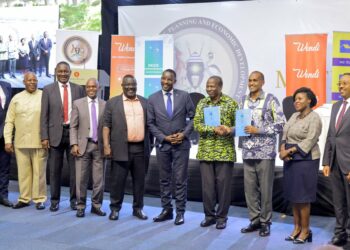By Sharon Tshipa
Two weeks of the just ended climate talks have been riddled with protests advocating for, among others, the inclusion of human rights into the rulebook, stopping fossil fuel use and food security; as food systems are at the intersection of various major challenges in the context of climate change and sustainable development.
In a brief interview, Tetet Lauron, a development worker and campaigner working on climate justice and sustainable development with Rosa Luxemberg Stiftung said, for nations to attain food security, governments and corporations need to get out of negotiating agriculture.
The UNFCCC Observer’s reasoning is that the climate smart agriculture that corporates are selling to governments is presented as an alternative, while beyond what she considers the rhetoric, climate smart agriculture is being promoted by the very companies that profit so much from agriculture as an industry, at the expense of small farmers.
“We are seeing that the issue of food security, and more importantly food sovereignty is just being demolished in climate negotiations. It is being put as a sacrificial lamb, negotiators say agriculture causes a lot of emissions and that we should be shifting towards more climate friendly means of producing food. But businesses, like Mosanto and Syngenta are just trying to promote genetically modified crops,” said Lauron. “They say drought resistant crops, and crops that can withstand too much rain are the way to go. But the thing is, they are tampering with the natural food system, with the objective to get more profits from these new types of crops that are supposedly designed for climate change,” she furthered her argument.
Asked to give her solution to how nations can ensure healthy and sustainable foods for their growing populations in the face of increasing climate impacts, while reducing greenhouse gas emissions, Lauron said it is crucial that communities go back to their roots. Traditional farming by indigenous communities she said has withstood droughts before, and people managed to live and eat decently when they were united; helping each other. She highlighted the use of indigenous knowledge systems as crucial. “I am not advocating for a return to the dark ages,” she explained, adding that people need ancestral wisdom as ancestors had a special relationship with earth and their mind-sets were about preserving and conserving.
Yinlong Xu, a Professor at the Chinese Academy of Agricultural Sciences also emphasised the need for indigenous knowledge systems, but he said they need to be linked with scientific knowledge for the sake of climate change adaptation. That done, he says Africa’s food security, among other nations, can improve, translating to better livelihoods. Linking tradition and science-based understanding of the multiple functions of agrobiodiversity, Yinlong said can raise local farmers’ awareness of environmental issues.
To attain food security and subsequently impact rural livelihoods positively, Africa has to act fast, as the World Bank Group admits that the 2018 Intergovernmental Panel on Climate Change (IPCC) special report delivered sobering news. The implications, the group’s Agriculture Global Note released in November notes, are especially dire for the world’s poor and undernourished as the impacts of warming are likely to be felt most prominently through agricultural and security challenges. Climate change is currently one of the greatest threats to human rights to life, health, food and an adequate standard of living of individuals and communities across the world.
To attain food security, some experts argue that access to energy is key.
“The development of agri-food value chains in emerging economies is challenged by restricted energy access. Energy is a service, it makes other things happen. In local communities it could be about enhancing farming,” said Dean Cooper, the Market Development Manager: Energy, at Smart Development Works.
To improve the overall energy and emission balance of agricultural systems, Dean asserts that food productivity per hectare must increase, while the carbon footprint is reduced. “Reliable access to energy and water resources, particularly in remote areas, can fundamentally change livelihood prospects, increasing agricultural productivity and food security,” shared Dean.
As food demands increase, Dean’s not-for-profit international development organisation, working in agriculture, renewable energy and water, sanitation and hygiene called SNV, founded in Netherlands in 1965, suggests that meeting the basic needs in rural areas and addressing the increased urban demand for energy-intensive foods like meat and vegetables will increase the energy demand in the agriculture value chain.
This, SNV purports can be addressed through pro-active interventions such as the use of energy efficient technologies and clean technology used for primary production technologies such as water pumping, heating, cooling, processing, conveyance, and field mechanisation. Greenhouses, rainwater harvest, drip irrigation and fertigation systems, or certain crop choices, SNV cites, allow for more efficient water, energy and fertiliser management. This improved resource management, Dean says, increases the technical and financial feasibility of any clean energy investment, also making the agricultural system more resilient to the effects of climate change.
In African countries like Uganda, Zimbabwe, Kenya, Ethiopia, and Rwanda, SNV is involved in projects ranging from biomass mini-grids, solar mini-grids, and national biogas programmes that support women’s cooperatives, to cite a few beneficiaries.
Do you have a story in your community or an opinion to share with us: Email us at editorial@watchdoguganda.com











